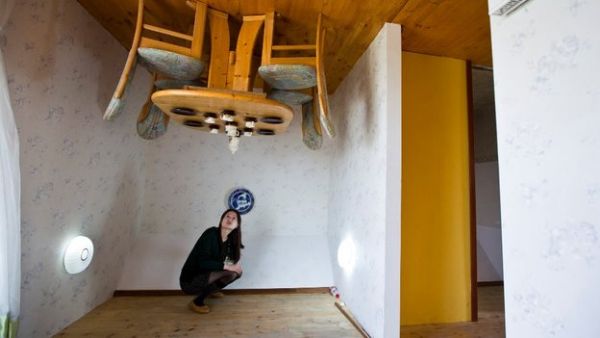The San Francisco Chronicle’s new restaurant critic, Soleil Ho, wrote a wonderful essay recently citing a melange of words she vows never to use in her restaurant reviews. This got us thinking about all the flaccid phrases and tired terms waiters peddle around the dining room every night that should be expurgated from the lexicon. In the spirit, we’ve compiled a list of things waiters should stop saying to their guests.
“Have You Dined with Us Before?” – This phrase has become a common waiter crutch to suss out first time diners, but it has also become comically overused. A simple “May I help you with the menu?” would better cut to the chase. Greeting the table with this question can also come across condescending—as if the diner will be lost without the server’s road map for placing a proper order.
“Served on a Bed of…” – First of all, there is no such thing as a food bed. In fact, there is nothing remotely mattress-like about a pile of Brussels Sprouts. It’s perfectly sufficient to say a dish is “served with” something. Why does conjuring pieces of furniture paint a better picture? We don’t eat beds, so why should we use the term to describe a dish?
“Medallions” – Servers use this word to describe pretty much anything that is cut circular. The thought of eating an actual medallion is not even appetizing. Bottom line: this term makes everything sound like banquet hall catering food and waiters should remove it from the vocabulary of menu descriptors. What’s next… Doubloons of Hakurei Turnips??

“Housemade” – It can be exhausting sometimes listening to servers describe ingredients on the menu as “Made in House”—Housemade Pancetta, Housemade Tartare Sauce, Housemade Cheesecake. It’s obviously a term meant to make the food sound more homespun and appealing, but nice restaurants should make everything in house without having to call attention to it. Also, the proper English is to say homemade.
“Pan-Seared” – This term began popping up in the late 90’s as a sexier way of describing the way certain fish and meat are cooked. Apparently, guests were supposed to be impressed that the chef was using a pan to sear something. Todays diners are more savvy about food so maybe waiters can leave the pan part out now. Let’s just go with seared.
“Cuts the Richness” – This phrase is often deployed by servers when recommending a wine pairing. It’s meant to suggest that the wine has good acidity, but it’s totally unnecessary to speak in such abstract terms. Waiters love to overcomplicate the description of things because they think it makes them sound smarter.
“Our Signature Dish” – The notion that chefs must have “Signature Dishes” has stifled creativity in restaurant kitchens. In the era of social media, groupthink has homogenized the way people order and waitstaff couching its recommendations around what is popular reinforces these bad habits.



